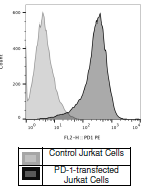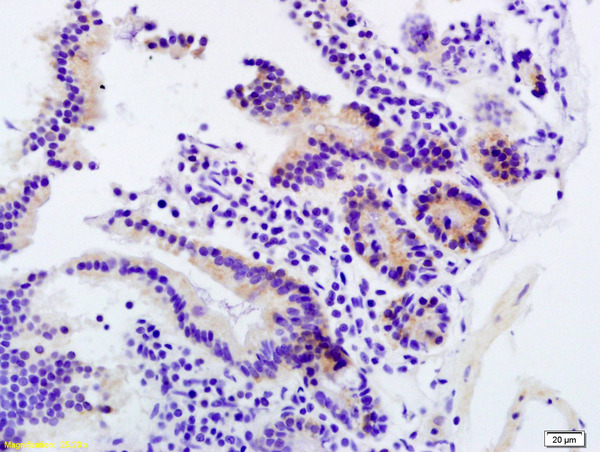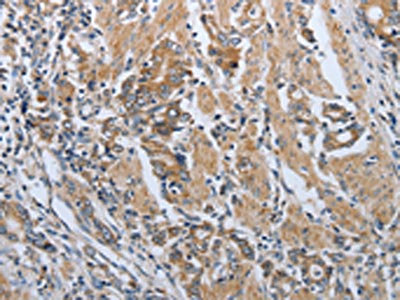![IHC-P analysis of human tonsil tissue using GTX34966 PD1 antibody [PDCD1/922]. IHC-P analysis of human tonsil tissue using GTX34966 PD1 antibody [PDCD1/922].](https://www.genetex.com/upload/website/prouct_img/normal/GTX34966/GTX34966_20200115_IHC-P_1399_w_23060801_138.webp)
IHC-P analysis of human tonsil tissue using GTX34966 PD1 antibody [PDCD1/922].
PD1 antibody [PDCD1/922]
GTX34966
ApplicationsFlow Cytometry, ImmunoFluorescence, ImmunoCytoChemistry, ImmunoHistoChemistry, ImmunoHistoChemistry Paraffin
Product group Antibodies
ReactivityHuman
TargetPDCD1
Overview
- SupplierGeneTex
- Product NamePD1 antibody [PDCD1/922]
- Delivery Days Customer9
- Application Supplier NoteICC/IF: 1-2microg/ml. IHC-P: 1-2microg/ml for 30 minutes at RT. FACS: 1-2microg/106 cells. *Optimal dilutions/concentrations should be determined by the researcher.Not tested in other applications.
- ApplicationsFlow Cytometry, ImmunoFluorescence, ImmunoCytoChemistry, ImmunoHistoChemistry, ImmunoHistoChemistry Paraffin
- CertificationResearch Use Only
- ClonalityMonoclonal
- Clone IDPDCD1/922
- Concentration0.2 mg/ml
- ConjugateUnconjugated
- Gene ID5133
- Target namePDCD1
- Target descriptionprogrammed cell death 1
- Target synonymsADMIO4, AIMTBS, CD279, PD-1, PD1, SLEB2, hPD-1, hPD-l, hSLE1, programmed cell death protein 1, programmed cell death 1 protein, protein PD-1, systemic lupus erythematosus susceptibility 2
- HostMouse
- IsotypeIgG1
- Protein IDQ15116
- Protein NameProgrammed cell death protein 1
- Scientific DescriptionThis gene encodes a cell surface membrane protein of the immunoglobulin superfamily. This protein is expressed in pro-B-cells and is thought to play a role in their differentiation. In mice, expression of this gene is induced in the thymus when anti-CD3 antibodies are injected and large numbers of thymocytes undergo apoptosis. Mice deficient for this gene bred on a BALB/c background developed dilated cardiomyopathy and died from congestive heart failure. These studies suggest that this gene product may also be important in T cell function and contribute to the prevention of autoimmune diseases. [provided by RefSeq, Jul 2008]
- ReactivityHuman
- Storage Instruction-20°C or -80°C,2°C to 8°C
- UNSPSC12352203

![IHC-P analysis of human tonsil tissue using GTX34966 PD1 antibody [PDCD1/922]. IHC-P analysis of human tonsil tissue using GTX34966 PD1 antibody [PDCD1/922].](https://www.genetex.com/upload/website/prouct_img/normal/GTX34966/GTX34966_20200115_IHC-P_1400_w_23060801_267.webp)







![IHC-P analysis of human tonsil tissue using GTX20256 PD1 antibody [NAT105].](https://www.genetex.com/upload/website/prouct_img/normal/GTX20256/GTX20256_20170613_IHC-P_w_23060620_766.webp)